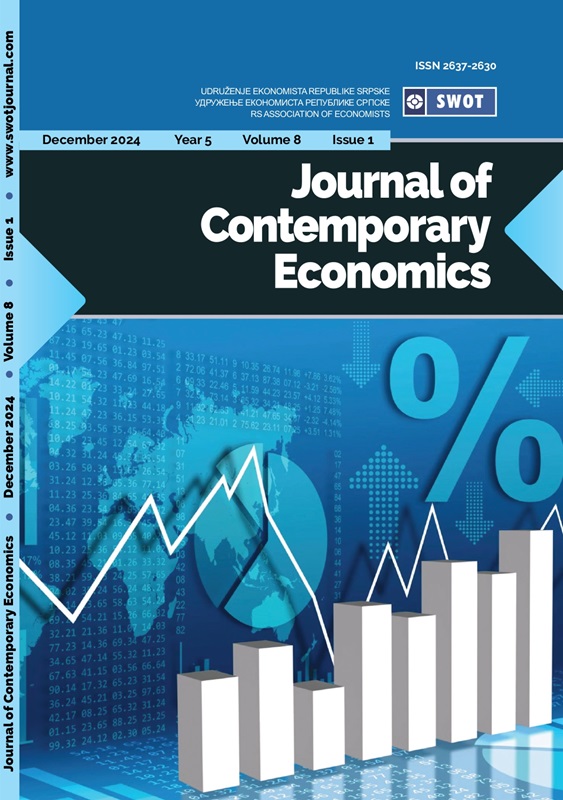Does market orientation of small and medium enterprises make differences in the market?
DOI:
https://doi.org/10.7251/JOCE2408066AAbstract
In market-oriented businesses, market orientation holds a significant
position as a business concept focused on recognizing and meeting
customer needs (the market). Given the interest in this subject, it is
essential to identify and analyze the factors influencing the development
of market orientation dimensions (market orientation - MO), conceptualized
according to the model proposed by Kohli and Jaworski (1990), and
their impact on increasing MO. Based on available literature and previous
empirical research, the following factors have been identified to assess
their influence on market orientation: professionalization of management
in SMEs, quality of communication/dissemination of market information
within the company, performance measurement of management staff in
SMEs, and their material rewards. This research was conducted on a
sample of 26 SMEs in Split-Dalmatia County, Republic of Croatia,
using statistical methods of descriptive statistics, correlation, statistical
testing, and clustering. Non-parametric statistics were used to overcome
certain limitations of the small sample size. The results are discussed in
the context of developing entrepreneurial infrastructure and public
policies to support entrepreneurship.

